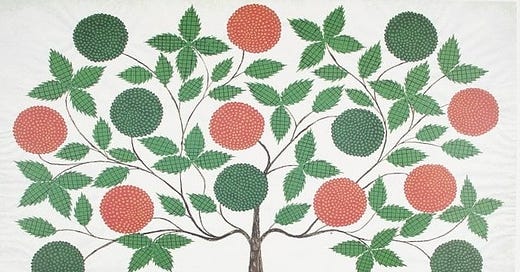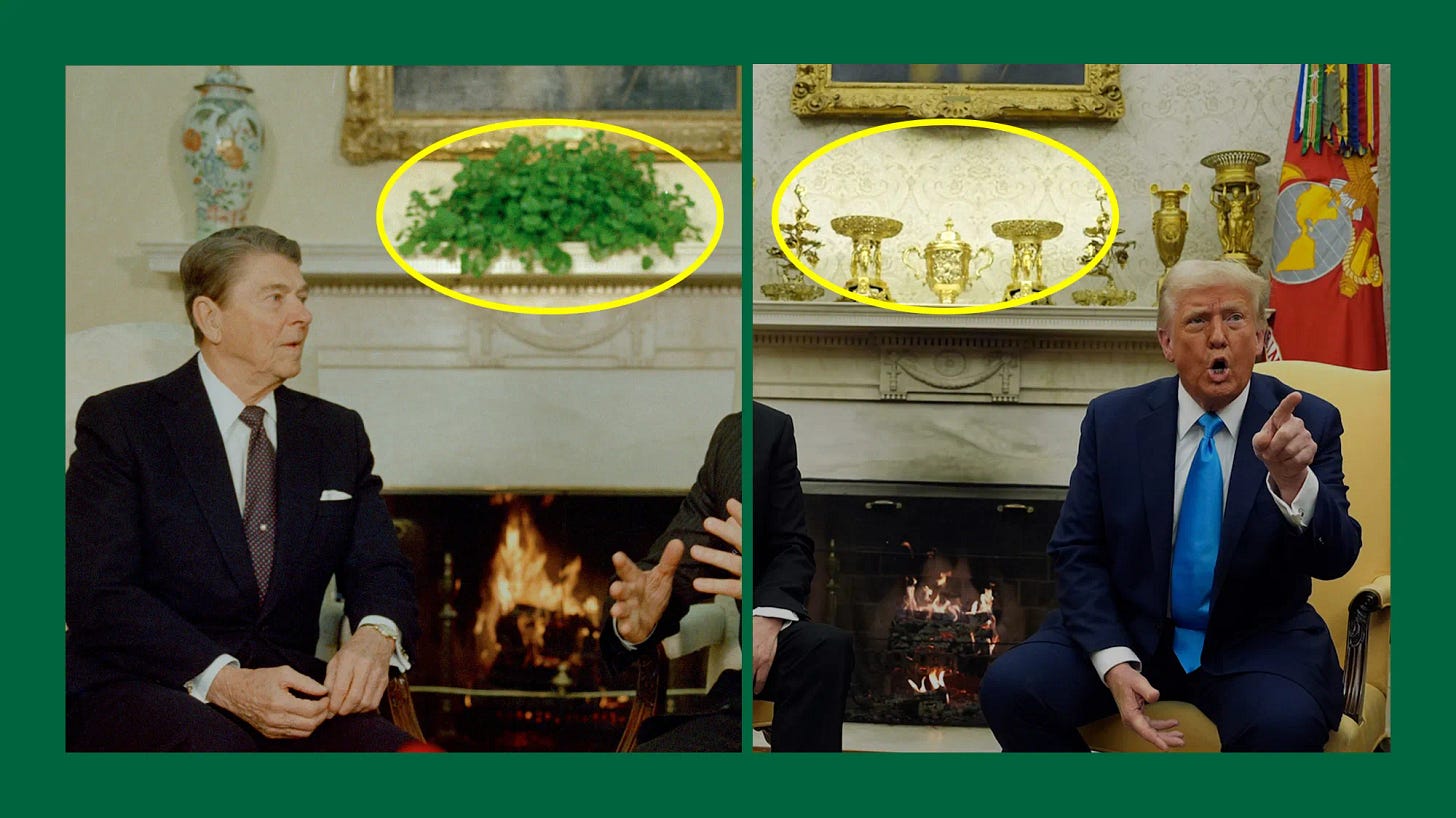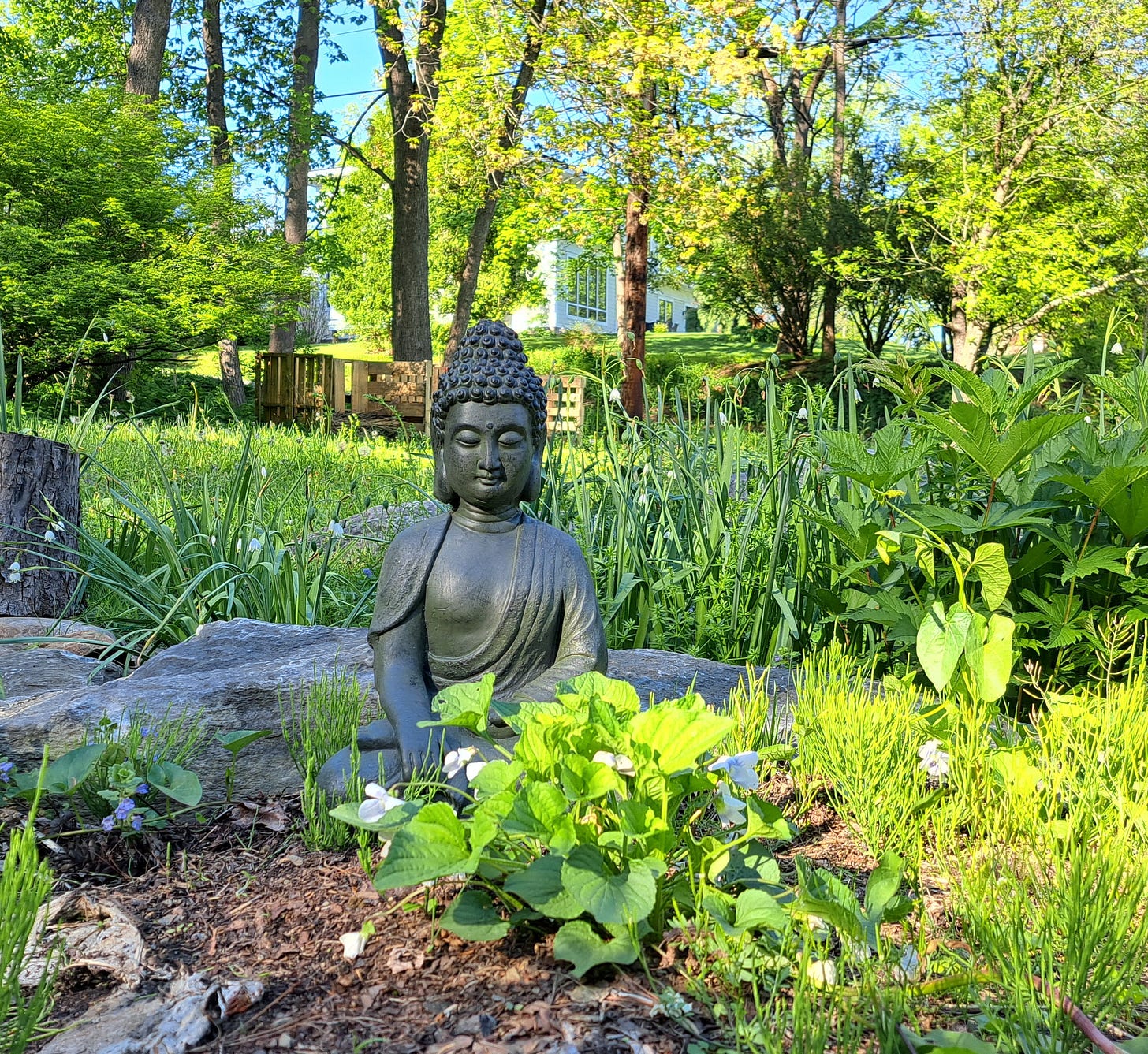'Tis the gift to be simple, 'Tis the gift to be free
Voluntary simplicity and the Prosperity Gospel

If you’ve been following the US news at all, you’ll know why I started asking, in reference to government officials and tech titans, the age-old question: How much is enough?
“But what about your china and silver?” she asked, “You didn’t leave that behind?”
It took me a moment to realize she thought I must have had a wedding registry and place settings from Liberty’s, instead of seconds from the January sales that I had, indeed, left behind in London.
I explained that I had brought only my children, my bicycle, my books, and T S Eliot’s desk.
She was not impressed, though she understood I had to bring the children. Musing, she said she’d had a friend who lived like that, an artist whose only furniture was a futon and a white picnic table. Simplicity itself.
Simplicity has been declared a virtue by spiritual leaders throughout history, in Buddhism, Islam, Christianity and no doubt many more belief systems. This makes the gold and silver treasure troves of Tibetan Buddhism as well as the riches of European churches seem a bit peculiar. Not so peculiar, however, as the American evangelical “prosperity gospel,” in which wealth is a sign of godliness and poverty is a sign of sin. The history of this “gospel” makes interesting reading,1 especially if you get pleasure from seeing just how greedy and sordid its proponents are and think this explains a good deal about the appeal of Donald Trump to white evangelicals. His love of gold fittings apparently trumps his immoral, unChristian behavior.
The removal of the famous White House ivy epitomizes the current regime in Washington:
Read the whole story in Mother Jones.
While my friend tried to position me as an artist and ascthete, I really wasn’t that. I felt a little embarrassed when the British environmental leader Jonathon Porritt2 wrote, in his foreword to The Armchair Environmentalist, that “Karen Christensen’s own secret to happiness (‘not getting more, but wanting less’) provides such a fitting foundation for her words of wisdom.”
In truth, I love beautiful things and would have had more of them—even china and silver—if I’d had the money. Over the years, I’ve acquired many lovely things and certainly can’t be credited with living all that simply, even though I eschew air-conditioning and Amazon Prime.
But we should be asking How much is enough? That was the title of a book by Alan Durning at the Worldwatch Institute that I gave some advice on in 1990 (in fact, I have two books with the title How Much Is Enough? You can find Alan’s here, and the other by two economists here.) Simple living had a bit of a surge then, not only amongst the environmental crowd with “Voluntary Simplicity” but also with a slick magazine called Real Simple. More recently, we’ve seen Japan-inspired “decluttering,” which isn’t quite the same thing, as well as something I still can’t get my head around: hoarding as an addiction.
“Voluntary simplicity” turned me off because it was popular with people who disdained aesthetic considerations, or so it seemed to me after visiting some of their houses. Cozy and welcoming they were not. Nor were they beautiful in their simplicity, as a Japanese house is. Instead, they were drab and utilitarian—and unnecessarily so. I’d learned by then, on coming back to the US, that it was possible, in this land of abundance, to buy lovely clothes and housewares at secondhand shops and tag sales. Even my virtuous friends could have had pretty dishes and attractive curtains.
Simplicity can be beautiful, as the Japanese make evident in their buildings, flower arrangements, and art. So too did the Shakers, a curious American religious group that did not permit sexual relationships. The Hancock Shaker Village is an attraction here in the Berkshires, and their houseware and furniture design is known around the world. The cellist Yo-Yo Ma, who is also a Berkshire regular, often plays the Shaker song, “Simple Gifts.”
 Tiktok failed to load.
Tiktok failed to load.Enable 3rd party cookies or use another browser
'Tis the gift to be simple 'Tis the gift to be free 'Tis the gift to come down Where we ought to be And when we find ourselves In the place just right 'Twill be in the valley Of love and delight When true simplicity is gained To bow and to bend We shall not be ashamed To turn, turn Will be our delight 'Till by turning, turning We come round right
I wonder if a prosperity gospel affects all of us in developed (ie, wealthy) countries? Certainly Americans, and especially white Americans, seem to see their wealth as an entitlement, part of the natural order of things. I read a post from Zambia on Facebook this morning about the copy of China Daily the writer had picked up at the airport, its lead story about the AI race between the US and China. The writer asked around and found that most of the Zambians had no idea what AI was. Was the future to be even more divided, he asked, between the rich and poor, the AI-savvy and the rest?
But one line made me think again. The Zambians, he wrote, “seem to have a happy, go-lucky approach to life.” This echoes something I heard years ago from an American who had taken a vacation in a tropical country. “It was nice,” he said, “But never again. I couldn’t stand seeing all the poor people, even if they seemed happy.”
“Seemed happy.” What if they really were happy when he saw them smiling and laughing together in the market or along the road? What if even people struggling for daily survival, for access to education and healthcare, are more connected and more resilient than we are? What if they are happier because they have family and friends to hang out with, and depend on? No wonder my American friend with the expensive beach clothes and luxury hotel thought he’d stick to rich countries from now on.
My home, after many years back in the US, is not a model of simplicity. But when a visitor said the other day that it “felt like a hug,” I felt good about my material acquisitions. Instead of that artist’s white picnic table, I’m about to paint the picnic table on the front lawn turquoise blue, and will invite the neighbors to use it. I heard about the “turquoise table.” a movement to create neighborly connections, from a woman working on third-place projects in eastern Massachusetts. I’ll report on progress in due course—after I get back from China.
Watching politics this year has mellowed my view of religions, as I see how at least some of them encourage moral discernment, unselfishness, and compassion. (Even some US fundamentalists still follow Jesus’s example—my favorite of these is Russell Moore, who writes a good newsletter and is the author of Losing Our Religion: An Altar Call for Evangelical America.) As I am going to one of the great Buddhist sites in the world soon, I decided that my garden needed a Buddha, this one with hands in the earth-touching position.
Who am I? Find out here. What is The Way We Live Now trying to accomplish? Read about that here.
Affiliate book links go to Bookshop.org, where you can purchase print and ebooks while supporting independent bookshops. Purchases also provide a small payment to Barrington Institute, Berkshire Publishing Group’s sister nonprofit.
Blessed: A History of the American Prosperity Gospel by Kate Bowler.
From the book: “Jonathon Porritt CBE is an eminent writer, broadcaster and commentator on sustainable development. He was Director of Friends of the Earth (1984-90); co-chair of the Green Party (1980-83); chairman of UNED-UK (1993-96); and stood down as Chairman of the UK Sustainable Development Commission in July 2009 after nine years. His books include Capitalism As If The World Matters (Earthscan, revised 2007), Globalism & Regionalism (Black Dog 2008) and Living Within Our Means (Forum for the Future 2009).”








